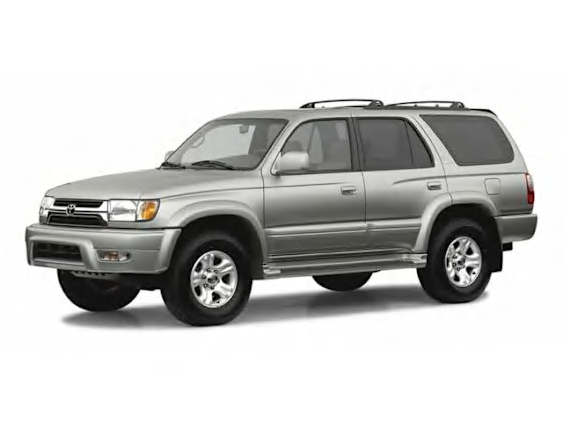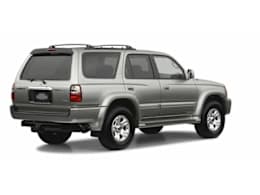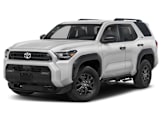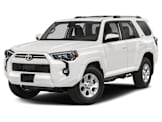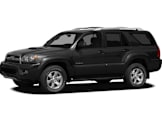By 2010, almost every mid-sized SUV had moved to a car-based design, but the Toyota 4Runner remained one of the last full-framed, truck-based SUV holdouts on the market. That makes it especially suited to off-roading. Otherwise, the 2010 redesign felt like a step backwards from the previous refined generation. The unsettled ride, mediocre handling, cheap interior, high-step-in, and low ceiling left us unimpressed. Limited trim versions have a sports suspension with somewhat better control, but a stiffer ride. The 4.0-liter V6 engine is powerful, but roars when accelerating. Fuel economy of 18 mpg overall is decent for this brick-shaped SUV. Controls are simple, with big buttons and knobs, but the touch screen is relatively small. A tight third-row seat is optional. Truck-based SUVs are generally known for their towing ability, but the 4Runner's rating isn't appreciably higher than some better-driving, car-based competitors. All 2020 models get the Toyota Safety Sense P (TSS-P) as standard equipment, which includes forward collision warning with automatic braking and pedestrian detection, lane departure warning, automatic high beams, and adaptive cruise control. Also, all versions get a standard 8-inch touch-screen infotainment system with Android Auto and Apple CarPlay compatibility.
